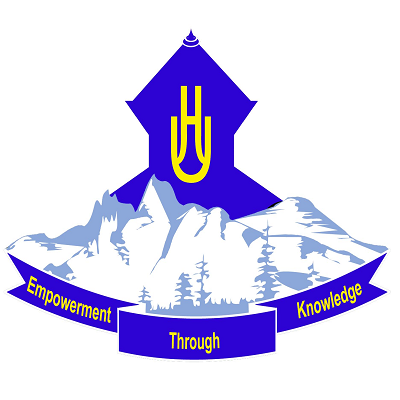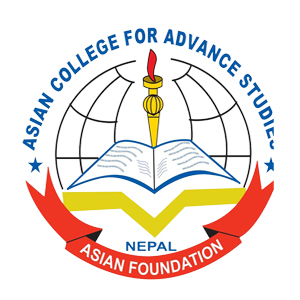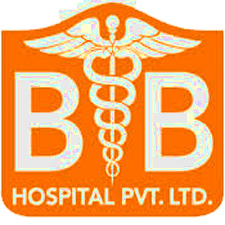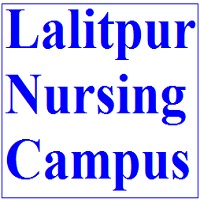Overview
BSc Nursing at Janamaitri Foundation Institute of Health Sciences, Hattiban, Lalitpur
Bachelor of Science in Nursing (BSc Nursing) at Janamaitri Foundation Institute of Health Sciences (JFIHS), Hattiban, Lalitpur, is a four-year undergraduate nursing program affiliated with Tribhuvan University, Institute of Medicine (TU-IOM).
The course prepares you to work as a registered nurse in hospitals, community health settings, and public health programs in Nepal and abroad.
JFIHS was established in 2010 and lies in the academic environment of the Little Angels’ Group at Hattiban, Lalitpur.
The institute focuses on health sciences education only, with dedicated programs in Nursing, Pharmacy, and Medical Laboratory Technology.
If you choose BSc Nursing here, you study under TU-IOM curriculum, gain long clinical exposure in partner hospitals in Kathmandu Valley, and learn from experienced nursing faculty with advanced degrees and strong clinical backgrounds.
This structure gives students a clear path from classroom learning to direct patient care and community work.
Highlights
-
Four-year TU-IOM affiliated BSc Nursing program based in Hattiban, Lalitpur
-
Core curriculum framed by Institute of Medicine, Tribhuvan University, with detailed micro-syllabus prepared by JFIHS faculty
-
Strong focus on clinical postings in hospitals such as Silverline (Janamaitri) Hospital, Paropakar Maternity and Women’s Hospital, Bir Hospital, Kanti Children’s Hospital, Mental Hospital, Tilganga Eye Hospital, and others in the valley
-
Nursing skill laboratories for fundamentals, community health, nutrition, anatomy, midwifery, biochemistry, pharmacology, research and related areas
-
Teaching team that includes senior professors, assistant professors and lecturers in adult health, pediatric, psychiatric, community, obstetric and gynecologic nursing
-
Clinical, community and research exposure aligned with TU-IOM and Nepal Nursing Council standards for BSc Nursing
Curriculum Details
The BSc Nursing curriculum at JFIHS follows the TU-IOM framework for generic BSc Nursing.
Across four academic years, you move from basic sciences into clinical and community-oriented nursing practice.
Typical subject clusters include:
-
Basic sciences: anatomy, physiology, biochemistry, microbiology, pharmacology
-
Nursing foundations and fundamental nursing skills
-
Adult health and geriatric nursing
-
Pediatric nursing
-
Psychiatric and mental health nursing
-
Obstetric and gynecologic nursing
-
Community health nursing and public health
-
Nursing research, biostatistics, management and leadership
The JFIHS prospectus notes that BSc Nursing is a four-year undergraduate program where students study anatomy, physiology, pharmacology and clinical nursing while developing patient care and disease prevention skills.
Classroom teaching is supported by skill-based practice in nursing laboratories, ward-based clinical postings and community fieldwork, similar to the practice structures used by other TU-IOM affiliated nursing campuses.
Objectives
BSc Nursing at JFIHS aims to:
-
Prepare graduate nurses who can plan, provide and evaluate safe nursing care for individuals, families and communities
-
Build understanding of preventive, promotive, curative and rehabilitative aspects of care, in line with TU-IOM’s nursing education goals
-
Develop nurses who can contribute to maternal and child health, adult and geriatric care, mental health and community health services
-
Encourage interest in research and evidence-based practice so that graduates can participate in quality improvement and policy discussions
-
Strengthen ethical practice, communication, teamwork and respect for patient rights
These objectives match both national health needs and the minimum requirement framework set by Nepal Nursing Council for BSc Nursing programs.
Scope
The scope of BSc Nursing in Nepal continues to grow as hospitals, community programs and public health agencies expand services. TU-IOM and NNC frame BSc Nursing as preparation for middle-level professional nurses who can work in hospital wards, operating theatres, outpatient clinics, intensive care units, community health programs and nursing education.
From JFIHS, you graduate with a TU-recognized degree and clinical exposure in a mix of general, maternity, pediatric, eye, cancer and community hospitals.
This background helps you serve in:
-
Government and private hospitals
-
Community and public health projects
-
NGOs and INGOs working in health
-
Nursing colleges and training centers (after gaining experience and higher degrees)
-
Occupational health, elderly care and rehabilitation centers
After registration with the Nepal Nursing Council and some experience, graduates may also explore work opportunities in other countries, based on each country’s licensing rules.
Learning Outcomes
By the end of the BSc Nursing program at JFIHS, students are expected to:
-
Apply nursing process (assessment, planning, implementation and evaluation) in clinical and community settings
-
Provide safe, ethical and culturally sensitive care across the life span
-
Use knowledge of anatomy, physiology, pharmacology and pathology while planning patient care
-
Communicate effectively with patients, families, peers and the health-care team
-
Maintain accurate records and documentation in line with hospital and council standards
-
Participate in health education, counseling and community outreach programs
-
Take part in research activities such as small projects, surveys or case studies guided by faculty
-
Prepare for the National Licensure Examination for Nurses conducted by Nepal Nursing Council after graduation
Skill Development Modules
Skill development in BSc Nursing at JFIHS relies strongly on laboratory work and clinical practicum. The institute lists a series of nursing skill laboratories, including fundamental nursing, community, nutrition, midwifery, anatomy, biochemistry, pharmacology and research labs.
In these settings, you practice:
-
Basic nursing procedures on mannequins and models before touching real patients
-
Vital signs measurement, infection prevention procedures and documentation
-
Maternal and newborn care skills in the midwifery lab
-
Community assessment techniques, health education sessions and survey tools
-
Simple nutritional assessment and diet planning
-
Safe medication administration and calculation through pharmacology practice
Clinical postings in partner hospitals allow you to apply these skills under supervision in emergency units, wards, operating theatres, maternity units and community health clinics.
Teaching Methodology
JFIHS describes its classrooms as spacious, ventilated and equipped with audio-visual tools such as multimedia projectors. The institute maintains a limited number of students per class to support interaction between faculty and learners.
For BSc Nursing, teaching methods generally include:
-
Interactive lectures and guided discussions
-
Skill demonstration and return demonstration in laboratories
-
Case studies, care plans and nursing process assignments
-
Simulation-based practice for emergency and obstetric scenarios
-
Clinical postings with supervision and feedback from ward teachers and clinical instructors
-
Community postings for family visits, school health, maternal and child health activities
-
Seminars, journal reviews and small research projects in senior years
The campus library and computer facilities support self-study, research, and preparation for assignments and the MEC entrance or NNC licensure exam format.
Admission Requirements
BSc Nursing at JFIHS follows national rules framed by the Medical Education Commission (MEC), Nepal Nursing Council and Tribhuvan University.
According to the JFIHS prospectus and MEC-linked eligibility table:
-
Educational background
-
10+2 Science or equivalent with Physics, Chemistry and Biology
-
Minimum 50% aggregate marks or CGPA 2.4 (meeting MEC eligibility for BSc Nursing)
-
Or A-Level (Biology) or equivalent with marks comparable to the above standard
-
-
Entrance examination
-
You must sit for the national Medical Education Commission Common Entrance Examination – Bachelor Level (MECEE-BL) under the BSc Nursing category
-
Only candidates who meet the 50th percentile or above in MECEE-BL are listed in the merit list for matching
-
-
College matching and admission
-
Seat allocation for BSc Nursing is done through MEC’s online matching system based on merit and choice filling by applicants
-
JFIHS admits students listed for its BSc Nursing program from this MEC merit-based matching list
-
-
Document requirements at the time of admission usually include:
-
Academic certificates and transcripts of Grade 10 and 10+2 or equivalent
-
Citizenship or passport (for international students)
-
Migration and transfer certificates where applicable
-
Recent photographs and other forms as per JFIHS and MEC instructions
-
Fee structure for BSc Nursing is determined by the Medical Education Commission for both scholarship and paying-category seats.
Students should refer to recent MEC notices and JFIHS official communication for current fees and seat distribution.
Career Opportunities
After completing BSc Nursing at JFIHS, students become eligible to sit for the National Licensure Examination for Nurses (NLEN) under Nepal Nursing Council.
Successful candidates receive registration as professional nurses, which is mandatory for clinical practice in Nepal.
Common career paths include:
-
Staff nurse roles in medical, surgical, pediatric, psychiatric, maternity and ICU wards
-
Nursing posts in maternity homes, community hospitals and specialized centers (eye, cancer, mental health, geriatric services, etc.)
-
Public health nurse positions in governmental and non-governmental health projects
-
School health nurse or occupational health nurse roles, depending on employer policies
-
Teaching positions (tutor, instructor) in nursing colleges after gaining some experience and higher degrees such as MSc Nursing
-
Research assistant or coordinator roles in health projects, clinical trials or academic institutes
Graduates may later apply for higher studies in Nepal or abroad, including MSc Nursing, Master of Public Health, Health Management, or other specialized programs, subject to each university’s criteria.
Scholarships and Financial Aid
MEC allocates a certain proportion of BSc Nursing seats as government-scholarship seats (general, inclusion categories) and the remaining as paying seats across health science colleges, including TU-affiliated campuses.
Key scholarship-related points for applicants:
-
Scholarship seats are filled strictly from MEC’s national merit list and category-wise quotas
-
Paying-category admissions are also done through MEC matching, but tuition is self-funded
-
JFIHS prospectus mentions internal scholarships and support measures such as internal grants, academic recognition and student support schemes for deserving students across its health-science programs.
For exact scholarship numbers, coverage and internal discount rules, students should follow the latest MEC scholarship notices and contact the JFIHS administration office.
Why Choose BSc Nursing at JFIHS?
Several features make BSc Nursing at JFIHS meaningful for students who want strong clinical exposure and a TU-recognized degree:
-
TU-IOM affiliation and adherence to national curriculum standards for BSc Nursing
-
Access to multiple partner hospitals across Kathmandu Valley, giving broad experience with maternal, pediatric, adult, mental health and specialized services
-
Nursing skill laboratories that mirror real clinical settings and allow repeated practice in a safe environment
-
Experienced nursing faculty with master’s degrees and long clinical and teaching backgrounds in different nursing specialties
-
Residential hostels, sports facilities, counseling services, and library and computer resources within the larger LA/JFIHS campus, creating a focused health-science learning environment
For students who wish to grow as safe, ethical and community-oriented nurses under TU-IOM and NNC standards, JFIHS provides a structured pathway that connects classroom, clinical practice and community service.
Conclusion
BSc Nursing at Janamaitri Foundation Institute of Health Sciences offers a four-year, TU-affiliated pathway into professional nursing practice, grounded in national regulations set by MEC and Nepal Nursing Council.
If you are a science student with interest in patient care, community health and long-term career growth in nursing, this program gives you structured learning, diverse clinical exposure, and a clear route to professional registration in Nepal. From there, your path can extend into specialist practice, teaching, leadership or further study, depending on your goals and commitment.
FAQ – BSc Nursing at JFIHS
1. What is the duration of the BSc Nursing program at JFIHS?
BSc Nursing at JFIHS is a four-year undergraduate program under Tribhuvan University, Institute of Medicine.
2. What minimum academic qualifications do I need?
You need 10+2 Science or equivalent with Physics, Chemistry and Biology, securing at least 50% aggregate or CGPA/GPA 2.4, or an equivalent A-Level qualification.
3. Do I have to take a national entrance exam?
Yes. You must sit for the Medical Education Commission Bachelor Level Common Entrance Examination (MECEE-BL) under the BSc Nursing category. Only candidates who reach the qualifying percentile in MECEE-BL enter the merit list used for college matching.
4. Is Nepal Nursing Council registration compulsory after graduation?
Yes. After completing BSc Nursing, you need to pass the National Licensure Examination for Nurses conducted by Nepal Nursing Council to receive professional registration. Registration is required to practice nursing in Nepal.
5. What kind of clinical exposure will I receive during the course?
JFIHS assigns clinical practicum in hospitals such as Silverline (Janamaitri) Hospital, Paropakar Maternity and Women’s Hospital, Bir Hospital, Alka Hospital, Kanti Children’s Hospital, Mental Hospital, Tilganga Eye Hospital, Bhaktapur Cancer Hospital and others, along with community postings.






















